Construction
Hanwha resumes $10 billion Bismayah new city project in Iraq
Following the partial resumption of the project, Korea expects to join the OPEC member’s other ambitious megaprojects
By Feb 27, 2024 (Gmt+09:00)
2
Min read
Most Read
LG Chem to sell water filter business to Glenwood PE for $692 million


Kyobo Life poised to buy Japan’s SBI Group-owned savings bank


KT&G eyes overseas M&A after rejecting activist fund's offer


StockX in merger talks with Naver’s online reseller Kream


Mirae Asset to be named Korea Post’s core real estate fund operator


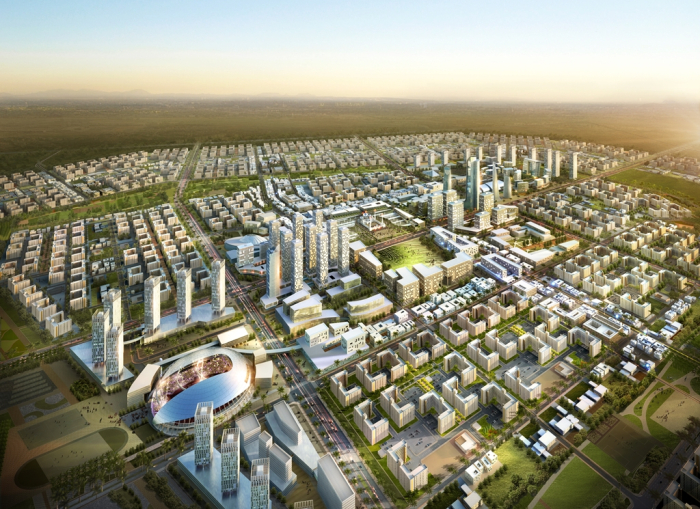
South Korea’s Hanwha Corp. is resuming a $10 billion project to build a Bismayah new city in Iraq after a 16-month hiatus as stakeholders see increasing benefits from the resurgence of the megaproject.
Korea’s Ministry of Land, Infrastructure and Transport said on Monday that Minister Park Sang-woo signed an agreement with Haider Muhammed Makkiya, head of the Iraqi National Investment Commission (NIC), the contracting authority of the project, to resume the project.
In October 2022, Hanwha Engineering & Construction Co., an affiliate of Hanwha Corp., terminated its construction work on the outskirts of Baghdad after failing to receive payments for years from the Iraqi side.
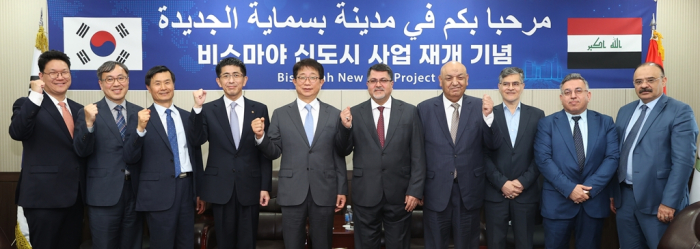
The Bismayah New City scheme, billed as the “biggest city development project in Iraqi history”, was first proposed in 2010 and awarded to Hanwha in 2012.
The plan was to build 100,000 housing units on 1,830 hectares of land with all the necessary transport, water, education, health and power infrastructure.
However, Hanwha halted work on the project in September 2020 after completing 30,000 houses as OPEC member Iraq failed to pay its dues for two years.
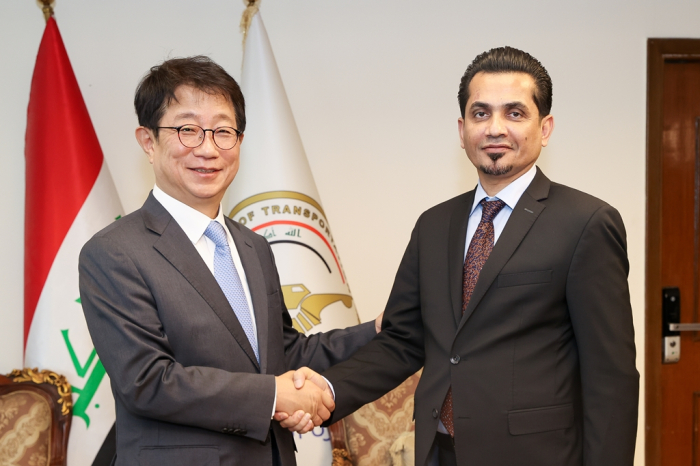
PARTIAL RESUMPTION
The decision to resume the urban development project comes after Hanwha received $230 million out of the outstanding $629 million last December.
Hanwha said this marks a partial resumption of the project to complete the unfinished portion of the apartment construction, and it may take some time before work fully resumes.
“Full resumption of the project can be discussed after receiving the remaining outstanding payments,” said a Hanwha official.
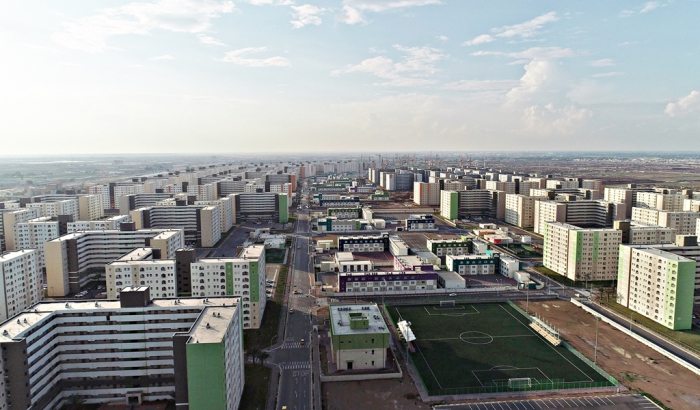
However, the Korean government sees the resumption of the Bismaya project as a stepping stone for Korean builders to gain further access to Iraq's pursuit of 15 other new city development projects.
During a Sunday meeting with Iraqi Minister of Transportation Razzaq Muhaibis Al-Saadiawi, Korean Minister Park said Korea has a role to play in Iraq’s ambitious urban development projects, given Korean builders’ ample experience in urban development and smart city construction projects.
In Iraq, Daewoo Engineering & Construction Co. has clinched a $2 billion project to build breakwaters, terminals and connecting roads at the Grand Faw Port.
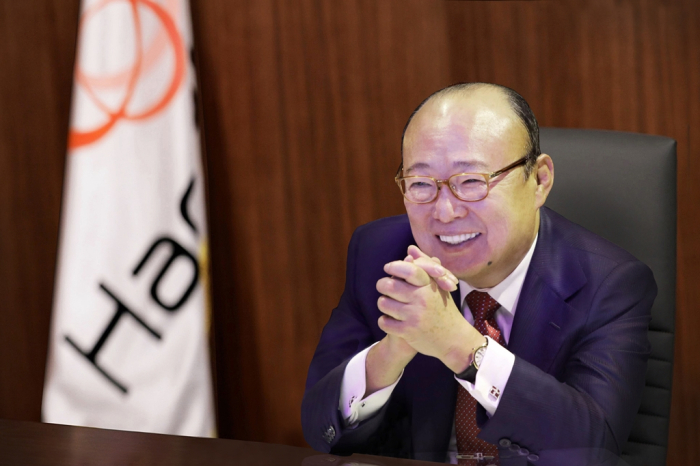
During the meeting with Minister Al-Saadi, Park said Korean companies can invest in petrochemical complexes and power plants near the port.
In response, the Iraqi minister said he hopes for active participation by Korean companies in Iraq's $17 billion railway and road network projects.
Write to Jung-Rak An at jran@hankyung.com
In-Soo Nam edited this article.
More to Read
-
 EnergyHanwha’s REC Silicon plant restarts as US-China tension eases
EnergyHanwha’s REC Silicon plant restarts as US-China tension easesNov 16, 2023 (Gmt+09:00)
3 Min read -
 Aerospace & DefenseHanwha aims to develop unmanned fighter jet engine within decade
Aerospace & DefenseHanwha aims to develop unmanned fighter jet engine within decadeMay 24, 2023 (Gmt+09:00)
3 Min read -
 Business & PoliticsHanwha hires former Biden confidant as US government affairs chief
Business & PoliticsHanwha hires former Biden confidant as US government affairs chiefMar 08, 2023 (Gmt+09:00)
3 Min read -
 ConstructionHanwha E&C abandons Bismayah project in Iraq; $581 mn loss expected
ConstructionHanwha E&C abandons Bismayah project in Iraq; $581 mn loss expectedOct 09, 2022 (Gmt+09:00)
2 Min read -
 Overseas ordersDaewoo E&C wins $3.1 bn in orders from Iraq, Mozambique
Overseas ordersDaewoo E&C wins $3.1 bn in orders from Iraq, MozambiqueDec 24, 2020 (Gmt+09:00)
1 Min read
Comment 0
LOG IN


